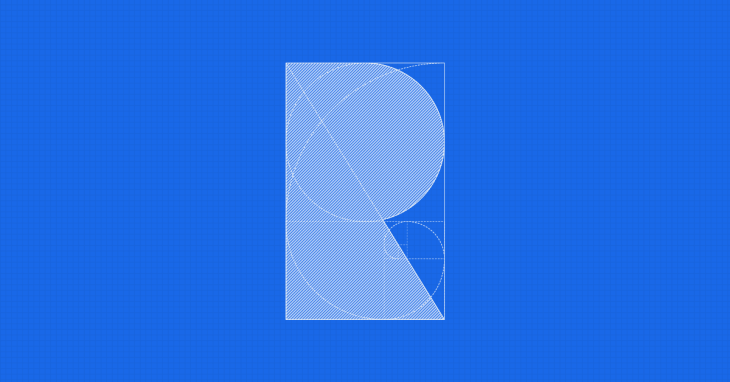Ramotion is a remote branding and product design agency that has worked with Bay Area tech startups since 2014. While they typically do branding for funded, fast-growing startups, Ramotion has helped companies ranging from Bitmoji’s early brand identity to Mozilla’s rebrand. We spoke to Ramotion’s CEO Denis Pakhaliuk about their iterative approach, his favorite branding projects and more.
Ramotion’s branding philosophy:
“We are a big fan of starting small: designing a small package, releasing it and then iterating on top of that. So, founders need to be focused on what’s really necessary right now for their next round of investment or product releases.”
On common founder mistakes:
“I think some founders think they need everything, but they actually need an MVP and product design. The same goes for brand identity. They need to have some key elements like colors, typeface and the logo. There is no need to do everything in the beginning, because the logo and brand identity becomes meaningful after it’s used. It’ll eventually improve.”
“They’re the reason we have such an amazing logo today.” Kevin Sproles, Austin, founder & CEO at Volusion
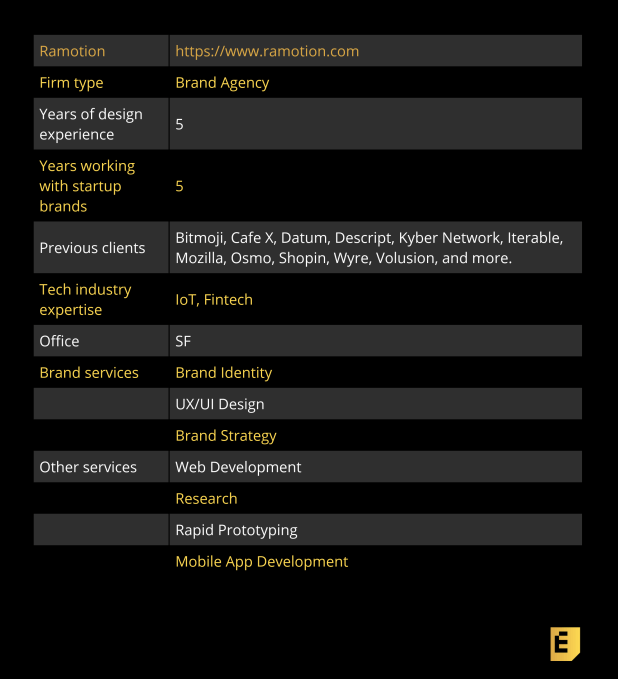
Below, you’ll find the rest of the founder reviews, the full interview and more details like pricing and fee structures. This profile is part of our ongoing series covering startup brand designers and agencies with whom founders love to work, based on this survey and our own research. The survey is open indefinitely, so please fill it out if you haven’t already.
Interview with Ramotion’s CEO Denis Pakhaliuk
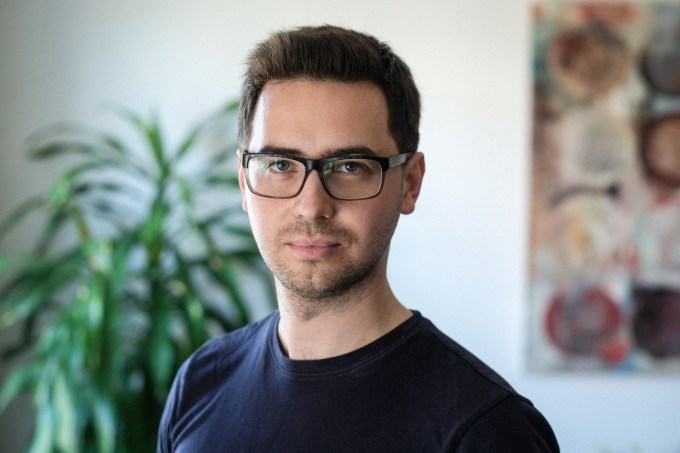
Yvonne Leow: Can you tell me about your journey and how you came to create Ramotion?
Denis Pakhaliuk: Yeah, I started as a CG designer more than 10 years ago. I was doing computer graphics, CG modeling, digitalization of architectural design and automotive design. I was initially very focused on German cars and industrial design. Once iPhone 3G came out, I switched to doing UI design for mobile apps, which was a very hot topic at the time.
From that point I met a guy who just said, “Hey, I’m thinking of building an agency,” and so we decided to do it together. It started with a few people and now we have up to 30. We focus on different products, from small companies to more established brands, like Salesforce, among others. So yeah, it’s been a fun journey.
Yvonne Leow: At what point did Ramotion start working with startups?
Denis Pakhaliuk: Yeah, we’ve been very popular among design communities like Dribbble and Behance, and I think in 2011 or 12, we started getting a lot of attention from San Francisco Bay Area companies. From that point on, we just became more focused on helping Bay Area startups. Almost 50 percent of our clients are now growing tech startups, operating in different markets like IOT, fintech and others. Before that, they were just random businesses.
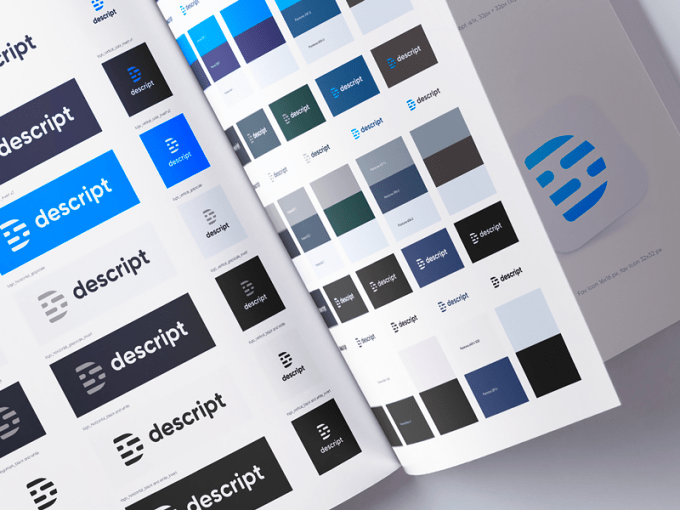
Yvonne Leow: What do you enjoy about working with founders?
Denis Pakhaliuk: I really enjoy working with startups because we started working with most of them when they were small, we saw their potential and they grew to become bigger established companies. It’s a very common case for us, but as an agency we really enjoy working with startups and helping them grow, being their partner, extending their team, because they’re in a rush to find new talent and we’re an extension for them. We’re helping them at a time when they need it.
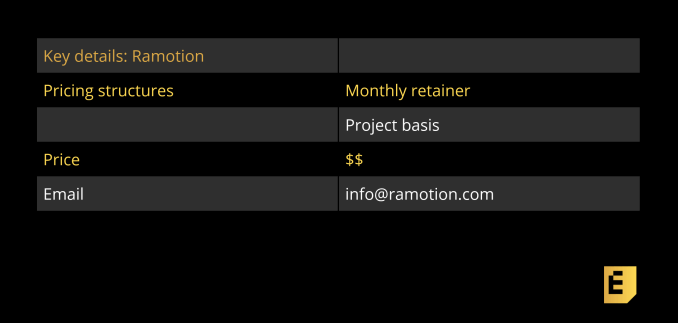
Yvonne Leow: Awesome. What is the ideal client relationship with your agency? What are you looking for when you’re deciding who to work with, and what qualities make it a successful collaboration?
Denis Pakhaliuk: There are a few things that really distinguish our clients from the rest. One is that they’re very design-focused. They know the value of brand and great design. Secondly, it’s helpful to us if we recognize their investors, or angel investors, like Jason Calacanis or some other folks. We’re more convinced to help them when we see that. Finally, I think the key thing is understanding the importance of design among their founders and internal partners. They’ll be more willing to listen to our design decisions and more open to exploration.
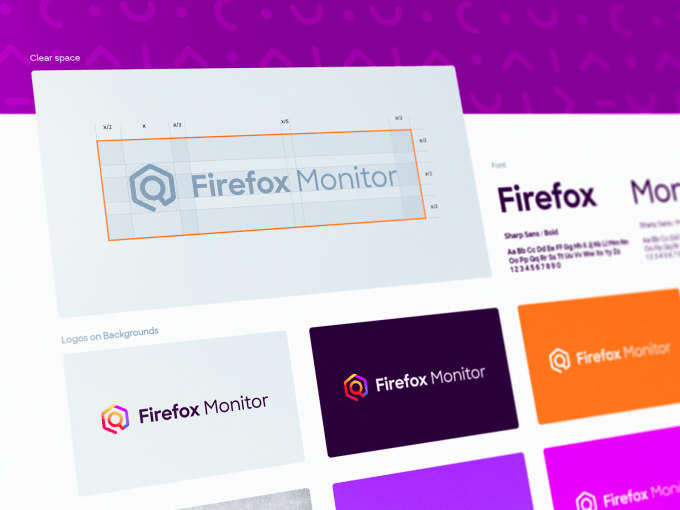
Yvonne Leow: Cool. What’s your creative process like? What can entrepreneurs expect once they’ve decided, “Okay, we’re gonna work together on launching our brand with Ramotion?”
Denis Pakhaliuk: So we take a few key steps, and there are much specific details, but I’ll give you a broad idea.
First, we put together a project brief to make sure we have a clear understanding of the brand, the company, their values and key brand attributes. Then, we have a comprehensive discussion with them to clarify any needs and make sure we all clearly understand the tasks. At some point we start working, starting with brand identity, which includes colors, typefaces, the logo and different additional assets like illustrations or iconography. Once we have all of them ready, we pick these assets and create a marketing website, basically refreshing their look from the outside while their team is heavily focused on the product. We then apply our visual identity to the product by doing some key screens of the product, maybe some more user flows, to make them look consistent across all channels so customers feel more comfortable using the product.
Yvonne Leow: Got it. What do you think is the most common mistake startup founders make when it comes to branding?
Denis Pakhaliuk: Branding is really important because the startup scene is so crowded and competitive. Startups need to stand out. I think some founders think they need everything, but they actually need an MVP and product design. The same goes for brand identity. They need to have some key elements like colors, typeface and the logo. There is no need to do everything in the beginning, because the logo and brand identity becomes meaningful after it’s used. It’ll eventually improve. We are a big fan of starting small: designing a small package, releasing it and then iterating on top of that. So, founders need to be focused on what’s really necessary right now for their next round of investment or product releases. Don’t overdo branding because it costs money and time.
Another example is, ironically, the opposite: when founders don’t pay enough attention to brand identity. Some of them are too focused on technology and product, and they don’t have a marketing manager or someone else who is responsible for that. They don’t pay enough attention to these important assets, and they should.
Yvonne Leow: Among all the projects and companies that you’ve worked with, can you tell me about one of your favorites and why you’re proud of it?
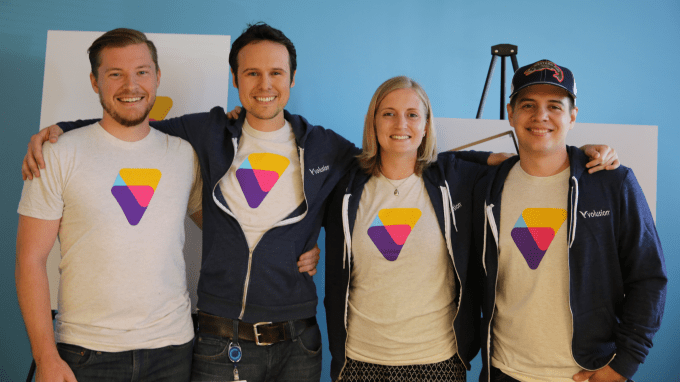
Denis Pakhaliuk: I can think of a couple of companies. One of them is Volusion, an e-commerce platform. We helped them improve their brand identity, which eventually influenced their overall look and feel and the product. They were also very collaborative. We worked with a few people from their team, and they not only accepted what we delivered, but they also improved upon it and have kept it consistent.
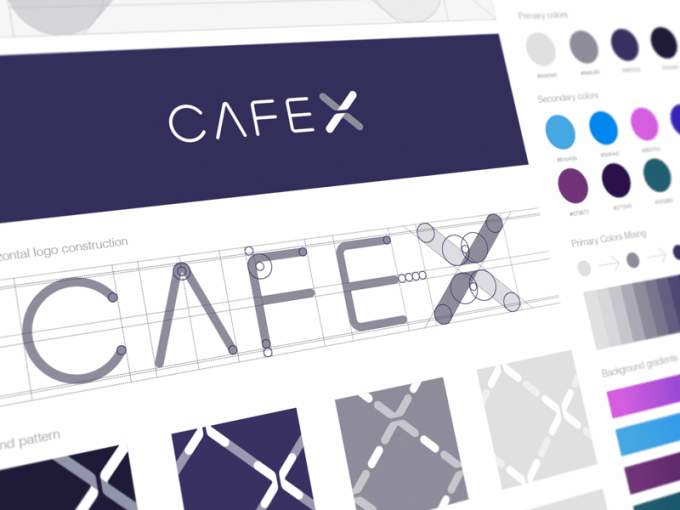
The second example was Cafe X, a robotics coffee machine company that approached us a couple of years ago. We helped them refresh their brand identity a little bit. It was one of the products we knew had huge potential and we were so excited to work on it. We also did some product design for their first-generation product as well.
Yvonne Leow: Finally, what’s your rate and fee structure for working with startups?
Denis Pakhaliuk: It’s purely project basis for now. We also do monthly engagement work. Product design, for instance, is never done. We extend the teams of these startups by providing our resources and working as long as necessary. It’s hard to estimate cost and time for these type of projects, which is why we work on a monthly retainer. The same goes for some ongoing web development projects.
Brand identity projects take a couple of months and sometimes longer depending on the scope. It’s an ongoing dialog between us and the client, so founders have to make a lot of design decisions with internal stakeholders. We usually charge around $30,000+ for branding projects. For marketing websites, it would take another two months of work. Some marketing websites are five pages, but those that are 30 pages or more would take another two to three months of work. The budget for those is usually around $50,000+. This might include some branding work, so our team would usually include a producer, web designer, brand illustrator and front-end developer.
Founder Recommendations
“We started off with a very thorough branding exercise to define all manner of fundamental brand assets. We then moved on to app and website branding, UX, and UI. They were very capable in all areas and truly exceptional in certain areas as well. They are growing rapidly, enjoy small teams with fast timelines, they embrace challenges, are extremely creative, and their work is gorgeous. All of their work is competitively priced but their branding is exceptionally affordable for the quality.” – Dave Sekowski, SF, founder & CEO @ Wellest
“They’re the reason we have such an amazing logo today. Here’s the story.” – Kevin Sproles, Austin, founder & CEO at Volusion
“We’ve worked with Ramotion on our brand identify refresh and our product’s analytics UI/UX, followed by an extensive overhaul of our website. We will extend this partnership to larger projects in 2019.” – Alex Mans, co-founder & CTO, FLYR
